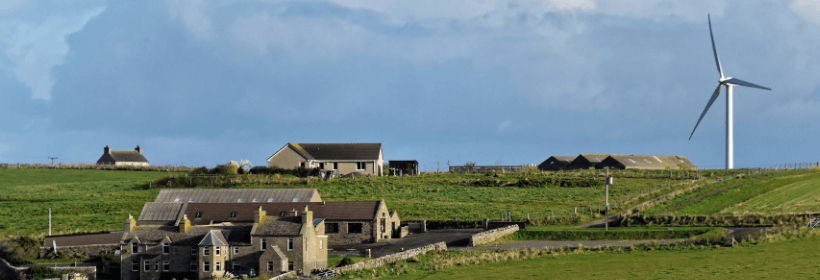On September 5, 2018, Rep. Sheldon Neeley introduced HB 6304 in order to invalidate provisions in the governing documents of homeowners’ association that ban “energy-saving improvements” or require approval from a homeowner’s association to install an “energy-saving improvement.” The proposed bill would be extremely problematic for Michigan community association’s for several reasons.
First, HB 6304 is problematic as there may not always be a physical location to install energy-saving improvements such as clotheslines, solar panels and wind turbines. Accordingly, this one-size fits all approach does not take into account that each community association is unique. Moreover, HB 6304 also appears to restrict an association’s ability to take action if an owner were to install an improvement in a common area without permission from the homeowner’s association, as it would presumably ban a provision in the governing documents that prohibited the installation of these items on common areas.
Second, HB 6304 would pose safety concerns as it takes away the ability of a homeowner’s association to condition approvals for energy saving improvements on an owner obtaining permits, complying with local building regulations or requiring that a licensed contractor perform the installation of the energy-saving improvement. In the context of the approval process, an association typically requires an association to insure the improvement as well as being responsible for repair, maintenance and other liabilities.
Third, HB 6304 is extremely broad in defining an “energy-saving improvement.” While the bill identifies clotheslines, solar panels and wind turbines as “energy-saving improvements.”, it is not limited to these 3 items. The definition of “energy-saving improvements” is so broad is could even include things such as exterior lighting or landscaping lighting, which are frequently regulated by homeowners’ associations. HB 6304 would also allow the installation of solar panels or wind turbines in front yards or on top of buildings without regarding to the impact of the aesthetics of the neighborhood, which could have a negative impact on property values. Accordingly, a majority of the owners in a homeowners’ association would lose the ability to regulate the aesthetic appearance of the neighborhood.
Finally, the HB 6304 does not define whether a homeowner’s association would also include a condominium association or cooperative, or just a traditional homeowner’s association that governed a platted subdivision. Accordingly, it remains unclear as to whether the bill would apply to all forms of community association or just certain types of community associations.
HB 6304 indicates that it would only apply to governing documents that are entered into after the bill was enacted into law. Accordingly, Michigan community associations should be proactive in amending their documents to include provisions that allow for associations to ban or regulate energy-saving improvements if their governing documents do not contain such language already, as such provisions would remain enforceable if HB 6304 were enacted into law. A copy of the language of HB 6304 can be found below:
A bill to invalidate provisions in certain homeowners’ association agreements requiring association approval for the installation or operation of energy-saving or energy-generating improvements; and to prohibit local units of government from requiring such homeowners’ association approval.
THE PEOPLE OF THE STATE OF MICHIGAN ENACT:
Sec. 1. This act shall be known and may be cited as the “energy-saving residential improvement act”.Sec. 2. As used in this act:
(a) “Energy-saving improvement” includes, but is not limited to, all of the following:
(i) A clothesline.
(ii) A solar panel array.
(iii) A wind turbine.
(b) “Local unit” means a county, township, city, or village.Sec. 3. A provision in a homeowners’ association agreement entered into on or after the effective date of this act that prohibits, or requires association approval for, a homeowner to install or operate an energy-saving improvement is invalid and unenforceable.
Sec. 4. A local unit shall not require a homeowner to obtain the approval of a homeowners’ association to install or operate an energy-saving improvement.
Sec. 5. Subject to section 4, this act does not prohibit a local unit from imposing requirements that may prohibit or limit the installation or operation of energy-saving improvements by a homeowner.
Enacting section 1. This act takes effect 90 days after the date it is enacted into law.
Kevin Hirzel is the Managing Member of Hirzel Law, PLC and concentrates his practice on commercial litigation, community association law, condominium law, Fair Housing Act compliance, homeowners association and real estate law. Mr. Hirzel is a fellow in the College of Community Association Lawyers, a prestigious designation given to less than 175 attorneys in the country. He has been a Michigan Super Lawyer’s Rising Star in Real Estate Law from 2013-2018, an award given to only 2.5% of the attorneys in Michigan each year. Mr. Hirzel was named an Up & Coming Lawyer by Michigan Lawyer’s Weekly in 2015, an award given to only 30 attorneys in Michigan each year. He represents community associations, condominium associations, cooperatives, homeowners associations, property owners and property managers throughout Michigan. He may be reached at (248) 478-1800 or kevin@hirzellaw.com.

